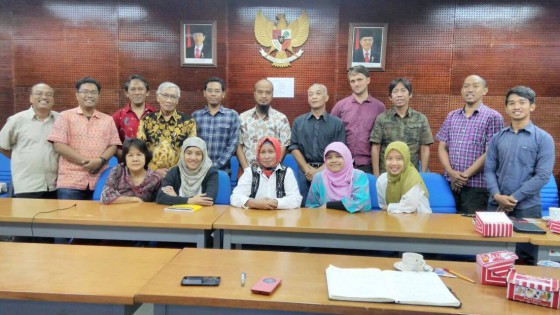Indonesia is home to many remarkable trees. Towering dipterocarps reach heights of over 70m, mighty ironwoods produce one of the world’s hardest timbers and durians are notorious for producing a pungent fruit which you may love or hate depending on your taste.
A dipterocarp tree. Credit: Arief Hamidi/FFI.
These versatile and valuable trees are under threat from logging and loss of their forest home to palm oil plantations and forest fires. At least 100 species are known to be Critically Endangered.
Although many species need urgent conservation measures, there are currently no national level plans to support their protection or restoration. The GTC is working on two fronts to turn this situation around.
On a national level, we are supporting the government of Indonesia to develop and then implement a conservation action plan for 12 of the country’s highest priority tree species. This work is guided by the ‘Indonesia Forum for Threatened Trees’, a network of leading tree conservation experts from various government departments, NGOs, botanic gardens and research institutes.

Members of the Indonesia Forum for Threatened Trees
On the ground we are also supporting local nature reserves and community groups to take action; helping them to better protect trees from logging and to support their regeneration in the wild through habitat management and targeted tree planting.
Threatened tree nursery in West Kalimantan. Credit: Jaswadi/Head of Kebun Bibit Rakyat, Desa Pelang Kalbar